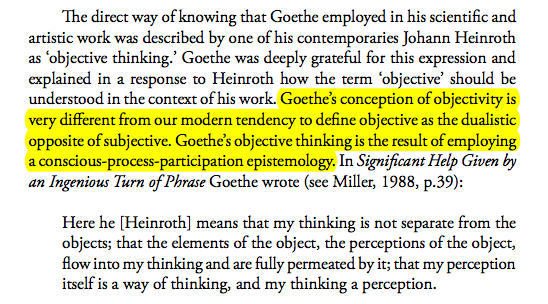In my current draft of “On the Origin of the Phenomenal” [A manuscript elsewhere], I am at pains to claim that the P-world of present experience arises based on a bedrock of the perception-action relation, which is heavily mediated and embedded in time through the nervous system.
Part of the supporting argumentation stems from the good offices of Ecological Psychology, in which lawfulness in the Perception/Action relation is a major concern. The paradigmatic case of diving gannets seeks to relate overt action (wing folding) to the energetic flux on the receptor surface. Similar concerns arise in the entire literature on affordance, in Turvey’s pendulum work, Bingham’s hefting, etc etc. The swaying room of Lisker and Lee is my favourite illustration.
But this claim is not going to reach many people who are not already familiar with the kind of lawfulness uncovered in such circles. The terms “Perception” and “Action” are loaded, and induce all kinds of unwanted and unwarranted associations in most readers.
“Perception” is probably being misapplied egregiously, not least by myself. We talk of perceiving when we discover events, things, and contingencies in our immediate environment. We perceive chairs, car crashes, storms, the misery and joy of others, and in talking of these remarkable feats, we label them, making use of a rich categorization scheme populated with uncontroversial categories such as chairs, car crashes, storms, misery, joy, and others. All of these are uncontroversial because they do fine service in our daily intercourse. We have language precisely because we can then use such terms efficiently, facilitating our mutual behavioral coordination, and getting on with the more pressing business of reaching our several goals. But for my purposes, in which I am considering the epistemological position of an abstract organism, O, in an abstract environment, E, we can not rely on any such categorization scheme. As argued elsewhere, we see chairs, …., others precisely because of the kind of thing we are, and not because there are chairs and others in some unobserved, objective, world.
Furthermore, the lawfulness to which I allude, is not rooted in a rich category structure like this. Rather, the lawfulness obtains between the informative flux at the sensory surfaces of an organism, and its attendant (not consequent) movement. (We will get to action in a minute.) It would be tedious to write “the physical, chemical, energetic gradients and their derivatives expressed at the sensory receptive surfaces separating the spatial domain of the organism, O, from its surrounding environment, E” all the time. This information (predicated upon the constitution, organization and capacity to act of the organism) is the “perception” end of that lawful relation that is the bedrock of experience. Without this information, there would be no perception. Calling it “sensation” does not help, but instead threatens to drag the discussion back to the 19th Century.
May that stand as a caveat for the term “Perception”. Now to “Action”.
As with perception, the term “Action” has many associations, and the word serves many functions, not all of which are required here. Although not as problematic as the previous case, there are pitfalls to be avoided. The main one lies in the presumption of intentionality, agency and goal-directedness. None of these are required. By “Action”, I mean observable movement. Even calling it “behavior” buys into a huge set of associations of plans, goals, and other mental constructs that have no place yet in the emerging vocabulary. Agency is the most problematic of these lurking assumptions, and relinquishing the notion of agency will be difficult as the discussion proceeds.
But one can not remain divorced from every day usage for ever. Somehow, it is necessary to build bridges back to our terms of convention, and our familiar situation. As we consider more complex explanation of more complex organisms, with nervous systems embedded in time, we will find it increasingly seductive to think of sensory information as input, and behavior as output. No matter how much we may be convinced that this is suspect, it is ingrained in our language. And as we do, the story being told will morph gradually until the organism seems to acquire goals, plans, and a stubborn independence of will. With that, the separation of organism from nature is complete, and we have reconstructed the duality we set out to banish. But hopefully we will remain conscious of the imitations of any account couched in such terms.
One of my main goals is to illustrate how to conceive of man as inseparable from his world. Our conventional linguistic habits introduce the tragic separation, even in consideration of the simplest of animals.
